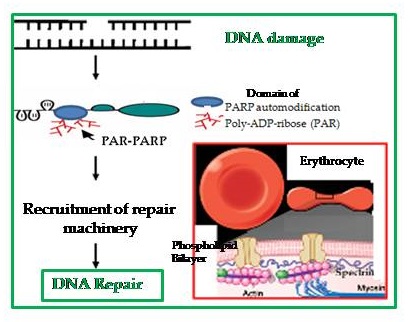Background: Beyond risk factors such as smoking, obesity and others, gastrointestinal cancer often occurs in families and the risk of getting cancer is passed down from parents to offspring. About 5%-10% of gastrointestinal cancers are hereditary (inherited by a gene mutation from one or both parents, predisposing them to develop cancer in their lifetime). Here we describe the clinical history of family members affected by gastrointestinal pathologies which often leaded to cancer. Methods: The subjects were monitored from May 2006 to December 2017 by collecting periodically clinical and endoscopic data, and performing molecular analyses by assaying two biomarkers , auto-modification of lymphocyte Poly(ADP-ribose)Polymerase as early signal of DNA damage, and erythrocyte membrane lipid composition (Fat Profile). First we focused on the oldest members, nine brothers, and thereafter we considered their offspring. Results: Both groups of subjects developed gastrointestinal pathologies of different kind and seriousness. Some diseases evolved to cancer, sometimes as a sudden and lethal event. The results of the two molecular approaches auto-modification of Poly(ADP-ribose)Polymerase and Fat Profile), were in agreement and even predicted the clinical and imaging paths. Conclusions: Both non-invasive molecular analyses can be used preliminarly to predict altered physiological states and support clinical and imaging analyses.

